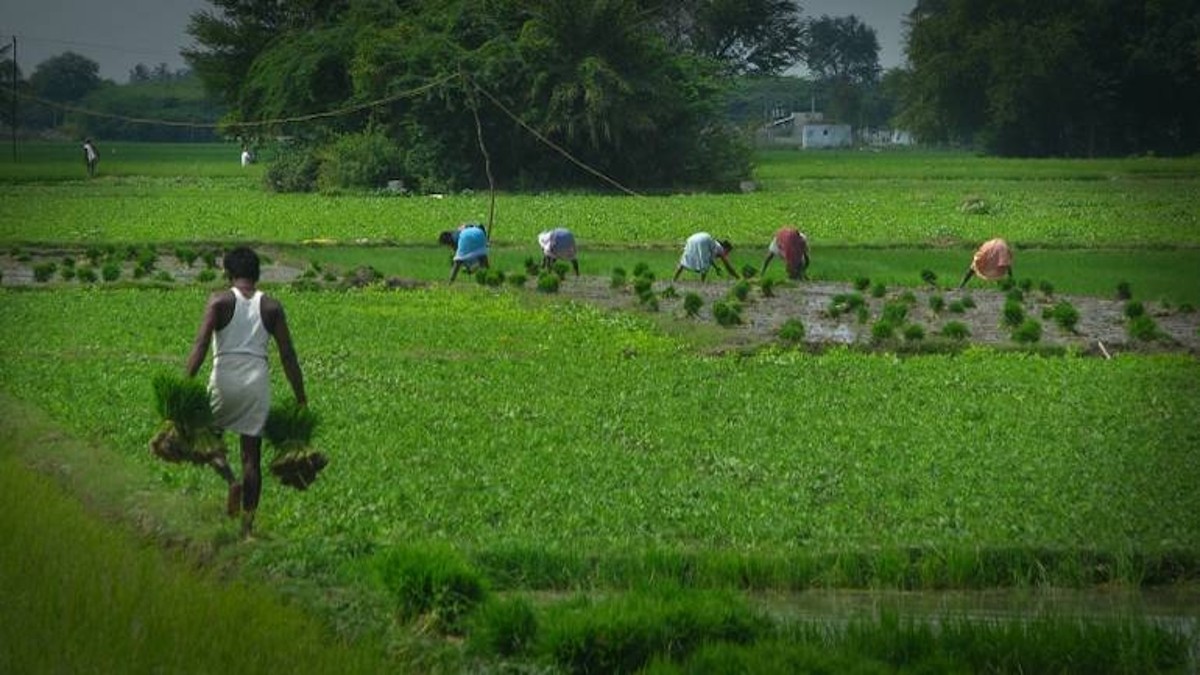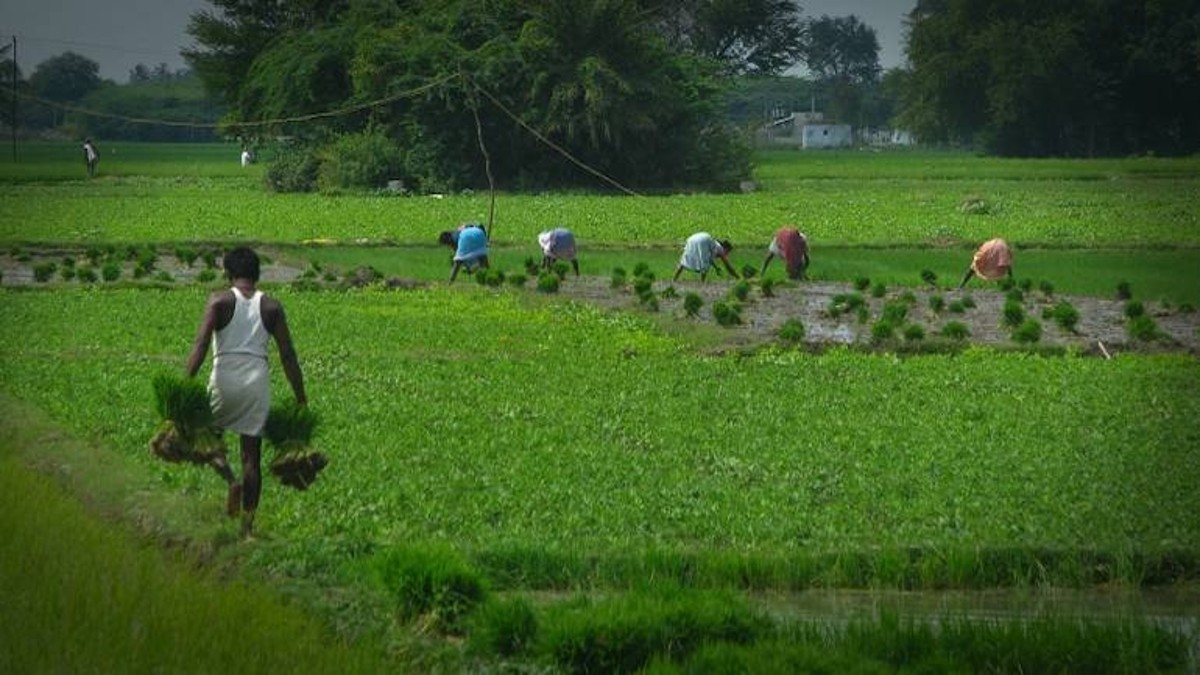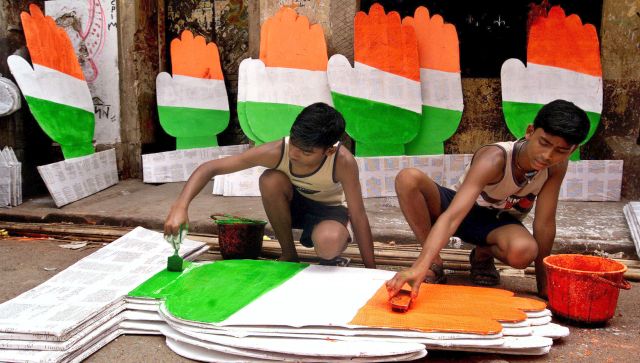Editor’s Note: A network of 60 reporters set off across India to test the idea of development as it is experienced on the ground. Their brief: Use your mobile phone to record the impact of 120 key policy decisions on everyday life; what works, what doesn’t and why; what can be done better and what should be done differently. Their findings — straight and raw from the ground — will be combined in this series, Elections on the Go_, over a course of 100 days._
Read more articles from the series here
***
Nayagarh: Mahua seeds are among the more important forest produce that the tribals of Odisha’s Nayagarh district often gather and sell. It involves an arduous and painstaking process — picking the seeds shed by the mahua plant from the forest, segregating them back at home and then drying them before getting them ready for the market. This means a tribal household is able to make just 2 kilograms of the seed per day.
Mahua seeds are among the many products classified for procurement by the Tribal Development Cooperative Corporation of Odisha Ltd (TDCCOL) at a Minimum Support Price (MSP) of Rs 20 per kilogram. But out of the blue last year, TDCCOL stopped procurement of mahua seeds, which is mainly collected in April-May. With private traders unwilling to match the MSP, the tribals had to throw their entire mahua seed stockpile away.
“A number of households here are dependent on collecting mahua seeds,” said Bula Padan, a villager. “When TDCCOL did not take it from us, all our labour went to waste.”
This is just one example of how the well-intentioned Forest Rights Act (FRA) of 2006 is failing due to lack of proper implementation on the ground. As 64-year-old Maagi Padan, a Kandh tribal from Dengajhari village in Nayagarh’s Ranpur block, asked, “While do we get subsidised ration, school uniforms for children and other aid; what about the issue of MSP and marketing of our products and giving us a fair price? Nobody cares for tribals, except during elections, when politicians roam around in our areas seeking votes.”
Nayagarh falls under the Puri Lok Sabha constituency, which is a Biju Janata Dal stronghold. The party has won the seat since 1998. Its MP Pinaki Mishra is also a lawyer in the National Green Tribunal.
There are examples abound of the indifference of state agencies in ensuring the MSP rights of these tribals, whose only source of income is the roots, shoots and seeds they are entitled to gather from their foragings in the forest. The FRA is great on paper, with all kinds of provisions to ensure tribals community rights and stable income. As part of this Act, the tribal ministry, in 2013, had declared MSP for 12 non-timber Minor Forest Produce (MFP), such as tamarind, sal leaves, mahua and wild honey, which Odisha accepted in 2014. Later, this was expanded to 23 and then to 40. In 2018-2019, the state increased the total MFP brought under MSP to 49 products, most of which are sold by tribals settled in different parts of Odisha.
However, despite the Central law and MSP regime, a number of reasons have kept the tribals of Nayagarh district, who make up about 6 percent of the electorate of the Puri Lok Sabha constituency, from getting the full benefits of MSP assistance, at times forcing them into distress sale of their produce. This is primarily due to the lethargy of the state procurement agency in buying forest produce on time and lack of adequate storage capacity and other required infrastructure. Such is the situation even though the tribal ministry’s scheme — ‘Mechanism for Marketing of MFP through MSP and Development of Value Chain for MFP — does not lack funds. States are expected to procure the notified MFP only in the event of the market price falling below its notified MSP. Odisha has made little use of this provision.
“The state government has failed at creating awareness among tribals and other communities, which are solely dependent solely on the forests. As the Gram Sabha is the owner of the forest produce as per laws, the state should facilitate the process of creating and establishing a friendly-market environment where the tribal and other forest dwellers get remunerative prices of their forest produces,” said Chitta Ranjan Pani, an expert on tribal livelihood.
“Even after 10 years of the FRA, tribals have yet to get their full rights to sell, dispose of and market their produce. Archaic states laws that contradict the FRA is one reason. Odisha needs a comprehensive law to ensure tribal rights.”
This correspondent visited Dengajhari village, a predominantly tribal village comprising the Kandh tribe. Even though the Naveen Patnaik government made tall claims of development, access to this village — barely 90 kilometres from Bhubaneswar — is a narrow kuccha road, with minor forest produce-bearing trees like reetha lining the roadside. Many of the Kandh tribals in this village, most of whom are forest dwellers, still live in kuccha homes. The village presents a sorry tale of blatant neglect by the elected representatives of the constituency, and its residents, a sorry tale of apathy by politicians and bureaucrats alike.
Like many tribal families of other areas in Nayagarh district and other tribal-dominated districts in Odisha, the villagers said they seldom go to the local market; instead, traders come to their villages for sales and negotiations.
“Local traders often come to the village,” said Bhagya Laxmi, a community worker from the area. “They scrutinise the products and negotiate the price with the tribals. Most products are sold at prices lower than MSPs.”
The traders have their own rationale. “Unlike the government, we make a bond with the tribals,” said a trader who would not give his name. “We ensure that their produce, like sal leaf plates and other items, is sold in urban markets like Cuttack and Bhubaneswar, where these products are in demand.”
Plates made of sal leaf, for instance, find big orders in towns.
During the visit to Dengajhari village, we were told that many women are involved in making plates out of sal leaf, which take hours to complete.
“Earlier we used to sell siali leaf plates, which are machine-stitched and were procured by the government. But we stopped it and shifted to sal leaves as the compensation was very low,” said Mukta Padan. “We now make plates from sal leaves, and the local traders give us Rs 80 for each set of 100 plates.”
Bula Padan, 35, added: “We go into the forest, pluck it, bring it home, dry it and stitch it. The traders then buy these. We don’t think we are paid what our toil deserves.”
TDCCOL buys forest produce at the MSP only when the tribals face distress conditions. Poor infrastructure in the tribal areas to store forest produce also makes it difficult for them to wait for a good price, which often means they are forced to sell their products at throwaway prices if TDCCOL does not come to their rescue. Villagers said a lot of the forest produce have short life spans, and if not sold or procured within a fixed time period, their quality could deteriorate and ultimately make the whole toil futile.
However, a senior TDCCOL officer insisted that they “reach out to the tribals and help them through MSP whenever informed about distress sales”. “Meanwhile, they are also linked with private traders and markets to sell MFP,” the officer said.
However, data from Parliament records show that in recent years, TDCCOL failed to utilise fully the Central support meant for MSP and other needs. Official statistics show that the Ministry of Tribal Affairs had sanctioned Rs 40 crore for Odisha for 2013-2014 but the state spent just Rs 0.73 crore that year. There was no sanction in 2014-2015, while in 2015-2016, the state received Rs 9.91 crore but utilised a mere Rs 0.36 crore of it.
“Most tribals in Odisha are landless and primarily dependent on MFP and its marketing for their livelihood,” said Y Giri Rao, a Bhubaneswar-based expert on forest rights. “There is an urgent need for better MSP coverage and providing facilities like cold storage and processing units for the tribals’ forest produce.”
The Odisha government cannot cite lack of funds for implementing the law. In fact, indications are that the SC and ST department has asked the Chief Minister’s Office to shut down the MSP scheme completely. It is believed that the non-profitability of TDCCOL, lack of coordination between TDCCOL and Central agencies and the rule that the state bear 25 percent of thelosses are cited as reasons for doing away with MSP. The relevant ministries are said to be working on an alternate model, though no details of this are known yet.
The author is a Bhubaneshwar-based freelance writer and state editor of 101Reporters


)




)
)
)
)
)
)
)
)